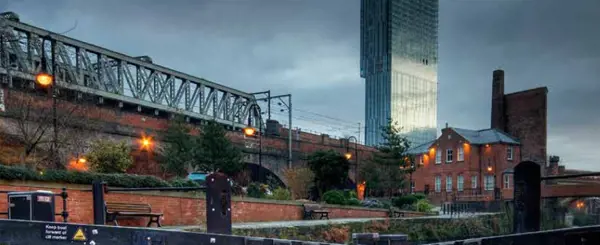The Northern Powerhouse concept has received a considerable amount of favourable coverage since Chancellor George Osborne first introduced it in his speech at Manchester’s Museum of Science and Industry back in June 2014. Whilst highlighting the north’s thriving cities, growing universities and iconic cultural events, Osborne’s speech stressed that although individually strong, collectively the northern cities were less than the sum of their parts.
Osborne’s suggestion was the concept of a Northern Powerhouse, “not one city, but a collection of cities sufficiently close to each other that combined they can take on the world” and in so doing, providing a powerful counterbalance to the dominance of London. The key ingredients to creating this Powerhouse were identified as: transport connectivity; backing science and universities; creative clusters; and, crucially, the devolution of power.
Almost two years on from this speech, the Northern Powerhouse remains a concept rather than a tangible policy. Whilst a number of interventions have been announced, such as the Greater Manchester Devolution Deal and the Northern Transport Strategy, no explicit growth targets have yet been identified. This has led to concerns amongst the development industry that the rhetoric is not being followed through into actual delivery programmes or strategic planning frameworks.
The issue is encapsulated by the Strategic Options Consultation on the emerging Greater Manchester Spatial Framework [GMSF], produced by the Greater Manchester Combined Authority [GMCA] to provide planning policy at a strategic level for the 10 Greater Manchester authorities. The document’s planning policies are underpinned by generally under-whelming growth targets for the City Region at just 0.7% annually for employment growth (despite achieving 1.2% annually since the recession) and most controversially, just 0.8% for annual housing growth (10,350 dwellings per annum). This would put Greater Manchester’s housing delivery rates behind the likes of Leeds/Bradford, London and Bristol.
Indeed, the level of housing growth pursued is barely higher than the demographic starting point identified in the latest household projections – hardly the level of growth necessary to allow Greater Manchester to drive forward the Northern Powerhouse and act as the counter-weight to London that Osborne envisages.
In this regard, NLP was commissioned by the ‘Housing the Powerhouse’ consortium to produce a report analysing Greater Manchester’s likely role as the driving force behind the Northern Powerhouse initiative, and what this was likely to mean in terms of housing and economic growth.
Our work found that job growth of 1% annually would represent a realistic target that better aligned with past achievements and future prospects, and which also compares favourably with levels achieved by similar pro-growth cities on the continent (with the cities of Dortmund and Nantes used as case studies).
We reported that Manchester was ‘best placed’ amongst the northern cities to drive forward the Government’s growth agenda, but that to avoid unsustainable levels of in-commuting from adjoining areas, a step change in housing provision was required - in the order of 16,640 dwellings per annum. NLP’s work also explored the (very substantial) economic benefits of pursuing this significantly higher housing target.
Our report concludes that Greater Manchester can lead the way in driving forward the Northern Powerhouse as it has in the past, but the emerging GMSF risks missing this opportunity by pursuing conservative levels of housing and employment growth well below many cities elsewhere in the UK. A re-booted, pro-development, GMSF would be beneficial for Greater Manchester, sustain the Northern Powerhouse and act as a healthy counterweight to London and the Greater South East.
Click here to see our Greater Manchester Report 
